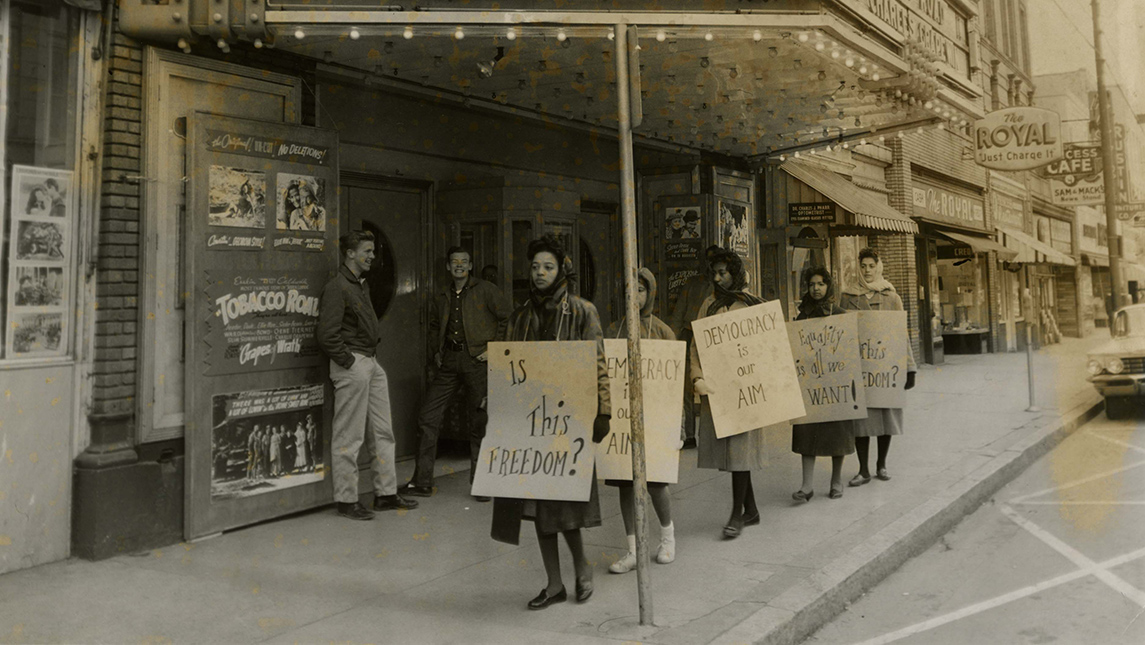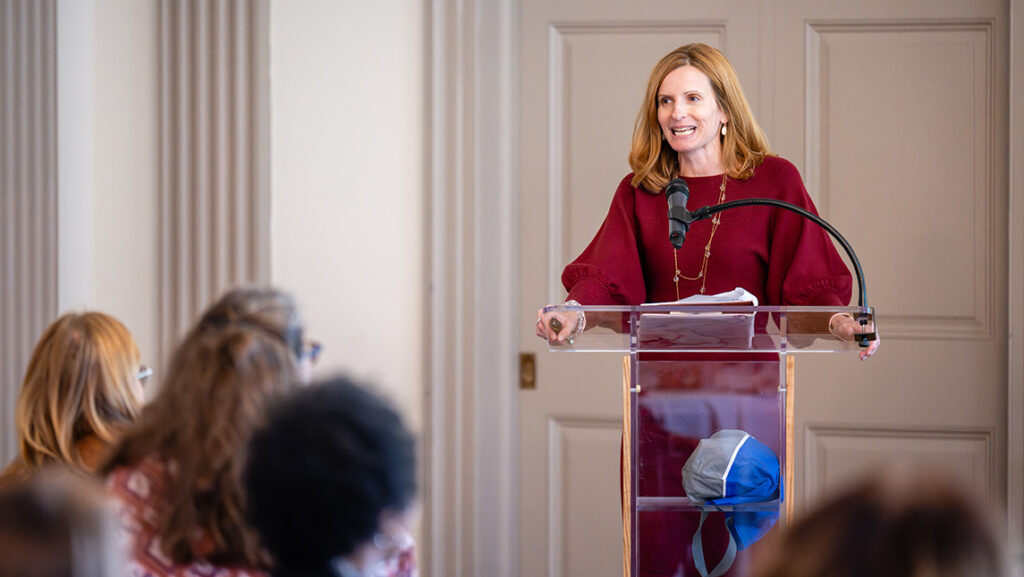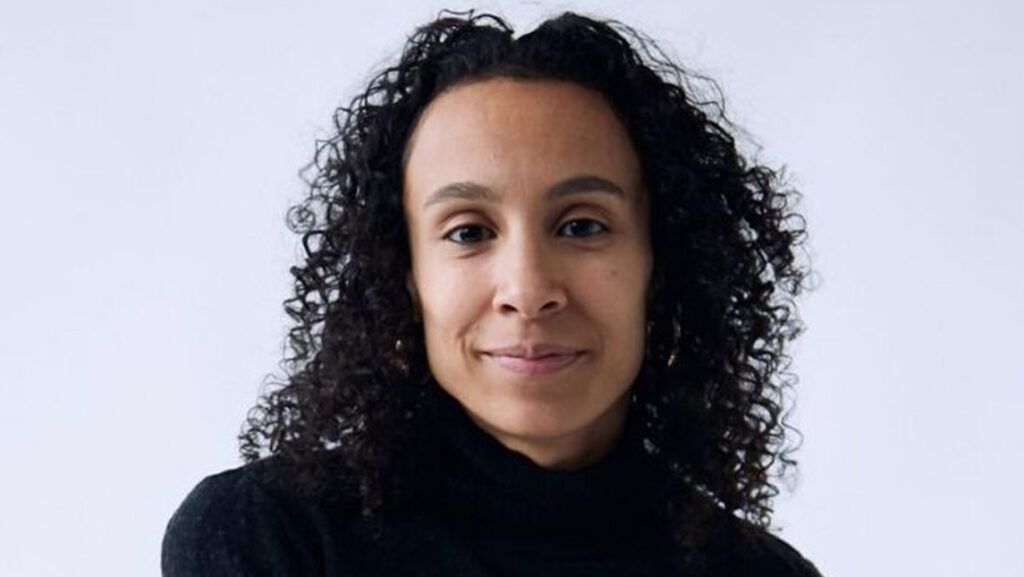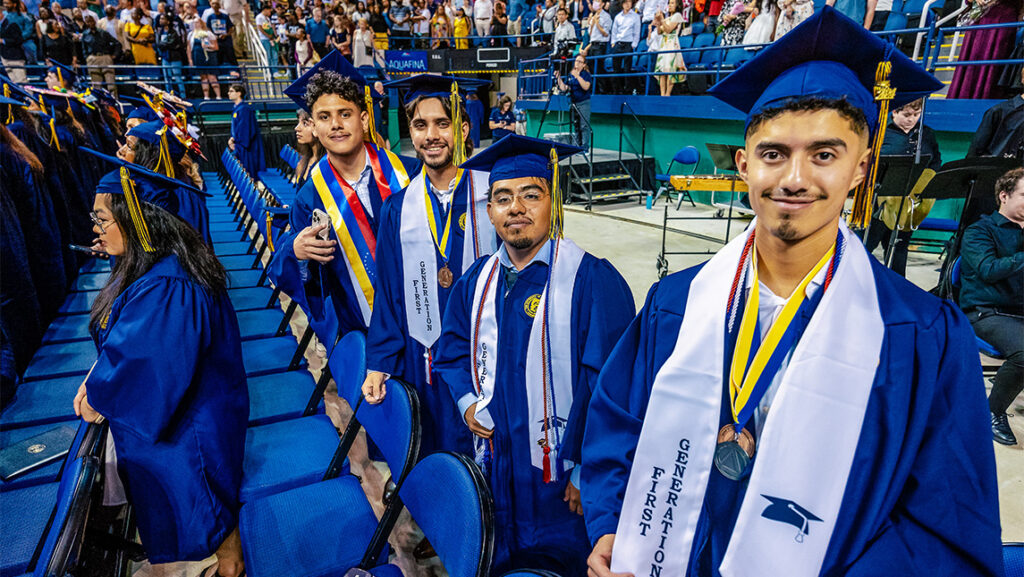
We all know of the Greensboro Four, Rosa Parks, Martin Luther King Jr., and John Lewis. But what about the civil rights activists who don’t end up in history books?
A UNC Greensboro project seeks to tell the stories of these lesser-known civil rights heroes of the 1960s and 1970s.
UNCG’s “Unsung Heroes of the Civil Rights Movement Project” launched today with 14 video interviews with activists whose work, while not always recognized, had profound impacts on the civil rights movement and helped set the stage for today’s #BlackLivesMatter movement.
The project is a collaboration between the Dept. of Media Studies, the Dept. of History, and University Libraries. “Unsung Heroes” dates back to 2009, when Professor Matthew Barr (Media Studies) and Dr. Chuck Bolton (History) collaborated on an interdisciplinary visual history course. In 2010, Dr. Curtis Austin of Arizona State University joined the project team.
Most recently, the project has expanded to include UNCG Libraries and undergraduate students. Thanks to funding from the Mellon Foundation, teams of students were trained to conduct visual history interviews, with guidance from Barr, Dr. Torren Gatson (History), and Professors Jennida Chase and Hassan Pitts (Media Studies). The student teams included Muhammad Karim and Atigre Farmer of Media Studies, and October Kamara and Summer Kinney of History. The Libraries team includes Richard Cox, Erin Lawrimore, and David Gwynn.
While the project’s focus has been the U.S. South in the 1960s and ’70s, the team hopes to create an expansive, national archive, highlighting activism from the 1960s to today. The project is designed to serve not only as a resource for researchers, educators, and students, but for the general public as well.
“The goal is to have hundreds of interviews,” Barr said. “This certainly isn’t the only civil rights archive, but the more you archive, the better. The more stories, the better. We’re trying to change the way we look at history.”
The interviews are visual history interviews, which means it’s not just audio. You get to see the people being interviewed – their body language, gestures, and facial expressions.
“Oral histories are great, podcasts are great, but there’s something powerful about actually seeing these people. The visual component is so important,” Barr said.
October Kamara, a recent graduate of UNCG’s history program and a current master’s student at Middle Tennessee State University, conducted four interviews as part of the project.
Throughout the experience, Kamara developed skills that helped prepare her for graduate work in public history.
“I really learned to collaborate well with others,” she said. “I was meeting with the team every week, figuring out logistics, and then working together to figure out the best way to present these stories. It really got me thinking outside of the box about what history can do and how it can engage a larger audience.”
For Atigre Farmer, a recent media studies graduate, hearing these often untold stories and perspectives was deeply impactful. “Learning about what came before you can inspire you to keep that going on today,” she said.
The launch of the project is especially timely, as the country continues to have conversations about systemic racism and the incidents of racist violence and police brutality from the summer.
“This project speaks to the fact that uplift is possible, no matter the trials and tribulations,” said Gatson, whose research focuses on African American history in the U.S. South. “‘Unsung Heroes’ connects us back to the civil rights movement of the ’60s and ’70s and compels us to ask the tough questions. Have we made strides in the right direction? Or are we still trapped in this vortex of systemic oppression and racism? This project offers a window into these deeper conversations.”
Learn more and watch the interviews at libresearch.uncg.edu/unsung_heroes/.


